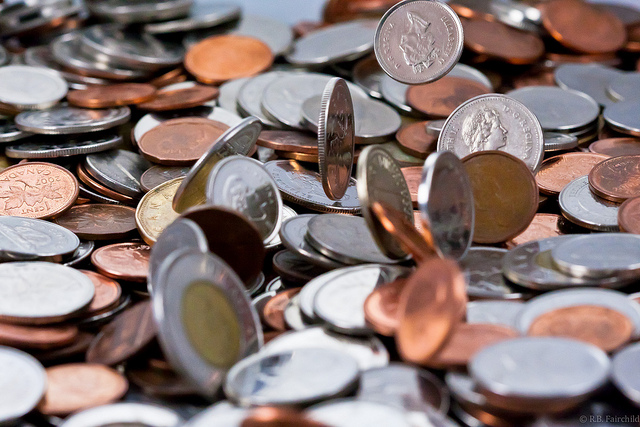Like this article? rabble is reader-supported journalism. Chip in to keep stories like these coming.
The need to end the expansion of social inequality and the concentration of wealth of the 1% has gone missing in action in the 2015 federal election campaign trail.
“No party’s really campaigning to end inequality or made it a centrepiece of their platform. No leader’s tour stop uses inequality as a stage or backdrop,” said pollster Marc Zwelling, president of Vector Research.
NDP leader Tom Mulcair and Liberal leader Justin Trudeau do address it indirectly with measures to help, what they call vaguely, a beleaguered “middle class.” Mulcair has come out with a national child care plan and a $15 an hour minimum wage for federal workers, while Trudeau has spoken about a single integrated child tax benefit and asking the wealthiest Canadians to pay more tax.
Peter Graefe, McMaster University professor and a specialist on public policy, said it is the Liberals who come closest to the inequality issue with a proposed new tax bracket for those making $200,000 or more that would generate an additional $3-billion in tax revenue. “But he kind of blinkers his scheme by lowering the tax brackets below [that amount],” said Graefe.
He observed that the NDP and the Liberals are steering clear of the kind of profound campaign being waged successfully against even greater concentrations of wealth and power in America by democratic socialist presidential candidate Bernie Sanders in the current Democratic party primary.
Nothing similarly “transformative” is being presented by either Mulcair or Trudeau, which might explain what it might take to create a more equal Canada, says Graefe. Inequality is ultimately about social power and equal access to services and opportunity, regardless of income, he added.
“Neither of them have the basis to start a class war [and] even among progressives there is disagreement if inequality is the issue or poverty is the issue,” he told rabble.
Graefe’s noted that the NDP got slammed back in the 2004 federal election for its inheritance tax proposal which has since been deleted from its platform.
So as we head into a lengthy 2015 campaign the current NDP current leader refuses to countenance a wealth tax on upper income Canadians. Mulcair told New Brunswickers, for instance, that local doctors faced with higher rate of tax would leave the province in droves.
This assertion sounds a bit strange to economist David Macdonald because in his mind the NDP leader is simplifying what motivates higher paying professionals in deciding where to live and work.
“I think it matters as much if your kids are happy in school, whether your spouse has a job, whether you like the city that you are living in, as the tax rate which prevails in that particular area of the country,” said Macdonald, a senior Ottawa economist with the Canadian Centre for Policy Alternatives.
Meanwhile, Dennis Howlett, the executive director of the Ottawa-based Canadians for Tax Fairness, says a wealth tax would with other progressive tax measures remove barriers to inequality.
But the traditional social democratic call to redistribute income via a wealth tax is nowhere to be found in the 2015 NDP election platform where, incidentally, Howlett has had input.
He likes the party’s promise to raise corporate taxes and eliminate tax loopholes (neither of which are in the Liberal party platform), including the stock option tax break for the wealthy, but is not sure that is enough to raise sufficient tax revenue.
“You can’t do everything at once, I kind of get that. But ultimately I do think that a wealth tax is needed, and the point of a wealth tax is not to raise revenue, it is to redistribute income,” he said.
A connection exists between inequality, the hiding of billions of untaxed funds by wealthy individuals and companies in offshore bank accounts in low tax jurisdictions and the lack of economic growth in Canada, added Howlett.
“This is one of the major problems in our economy. There is not sufficient consumer demand because real incomes in the middle and lower incomes are not growing very much. What is growing is people’s debt load which has kept up consumer demand artificially, resulting in people living beyond their means,” he said.
In theory, the Canadian tax system is supposed to mitigate inequality by having people moving into higher income brackets pay more tax.
But this is happening less and less as companies and wealthy individuals become quite adept at finding tax loopholes in an increasing complex Canadian tax system with the assistance of expensive lawyers and CA firms.
Furthermore, inequality is not just about the tax system, said David Macdonald. He was referring to the onset of wage stagnation, decades of layoffs in the manufacturing sector and the rise in the number of people working at one or more precarious jobs that are low paying and contract based.
He pointed especially to the weakening of the labour movement and the difficulty faced by of workers to bargain for significantly higher wages with their employers.
“If you look at the wages in some of Canada’s big cities, Toronto, Vancouver and Montreal, wages at the bottom of the population are actually lower today than they were in 1982,” he reported.
Paul Weinberg is a Hamilton-based freelance writer who can be reached at [email protected].
Photo: flickr/ Robert Fairchild



